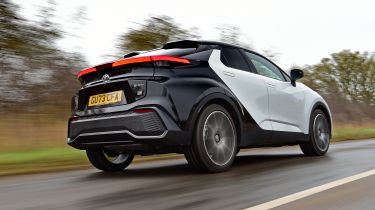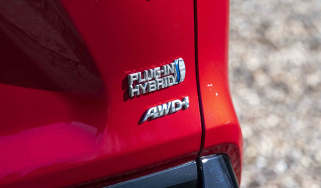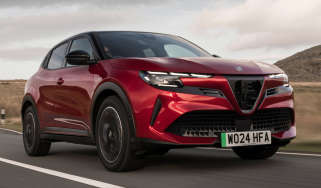Toyota C-HR review – MPG, running costs & CO2 emissions
“The C-HR’s existing hybrid line-up is bolstered by the arrival of a PHEV powertrain for the first time”
The Toyota C-HR is well-known for being a hybrid model, with only a small number of non-hybrid petrol cars sold in the UK early on as part of the first-generation model lineup. While the choice of hybrid petrol engines continues into this second-generation car, the big news is the arrival of a PHEV option for the first time.
While we’d still recommend one of the hybrids for buyers looking for an affordable urban runabout, the PHEV will rightly appeal to buyers considering an EV, but not sure if they (or the charging infrastructure) are quite ready to make the switch. Unless you find a good PCP finance deal, it is rather pricey, so we expect most PHEV customers will be business drivers looking to benefit from its low 8% BiK band.
For those willing to stretch their budget, it offers the best of both worlds, providing an EV range of up to 41 miles for zero-emissions driving near home, along with a petrol engine for those occasions when you need to travel further afield at short notice.
Unlike some of the latest PHEVs with rapid charging, it’s a shame the C-HR’s battery pack only accepts peak charging speeds of 7kW. There won’t be much point using a public charger to add range (unless it’s very convenient to do so), but plug it in at home and the battery will be fully replenished in around 2.5 hours. There’s also a ‘charging mode’ that uses the petrol engine to gradually top up the battery as you drive along, but it has an impact on fuel economy, and is only really useful if you specifically want to drive in EV mode at the end of your trip, as you head into a town or city.
|
Model |
Fuel economy |
CO2 emissions |
|
1.8 hybrid petrol 138bhp |
58.9mpg |
103g/km |
|
2.0 hybrid petrol 195bhp |
57.7mpg |
107g/km |
|
2.0 plug-in hybrid petrol 220bhp |
313mpg |
19g/km |
How efficient is the Toyota C-HR in the real world?
During our test of the Toyota C-HR 2.0-litre Hybrid we managed to average a respectable 48mpg in a range of different driving environments which included a long stint on the motorway. We think the 48mpg figure is impressive given the car’s 8.1-second 0-62mph acceleration time.
How much will the Toyota C-HR cost in tax?
The Toyota C-HR costs the discounted annual rate in VED (road tax) thanks to its alternative-fuel status as a hybrid. The plug-in hybrid version will likely be the best option for company-car buyers because of the fact that it sits in a low 8% BiK (Benefit-in-Kind) tax band thanks to its fairly low emissions.
What will the Toyota C-HR cost to insure?
While insurance groups haven’t been confirmed for the PHEV yet, ratings for the hybrid versions are slightly raised from the outgoing car, spanning 20 to 29 out of 50 (up from 15-24 previously). We expect the PHEV to sit in a higher band, both because of its extra performance and its higher value and complexity.
Which Is Best?
Cheapest
- Name1.8 Hybrid Icon 5dr CVT
- Gearbox typeAuto
- RRP£31,440
Most Economical
- Name2.0 PHEV Design 5dr CVT
- Gearbox typeAuto
- RRP£39,230
Fastest
- Name1.8 Hybrid Icon 5dr CVT
- Gearbox typeAuto
- RRP£31,440















